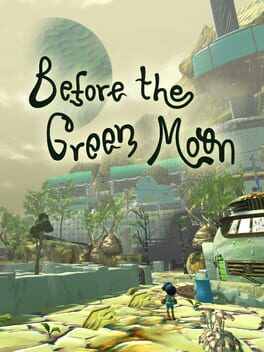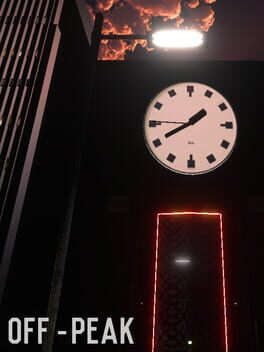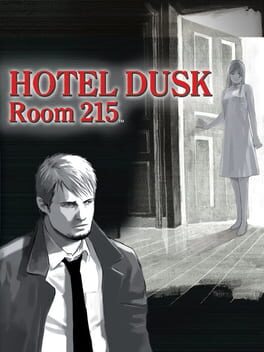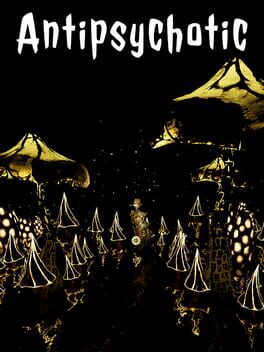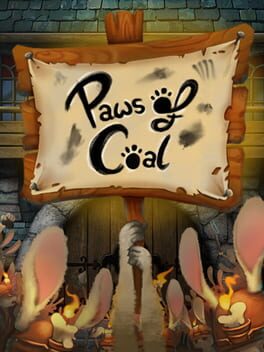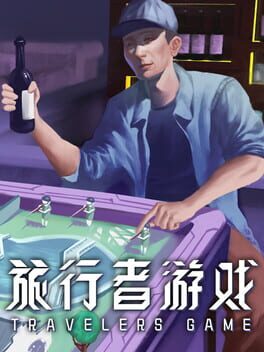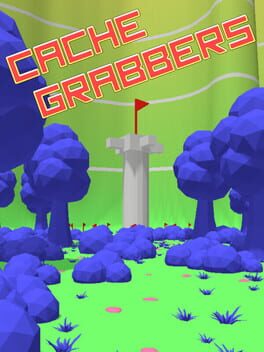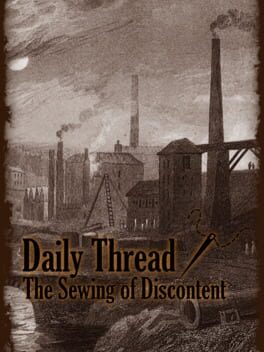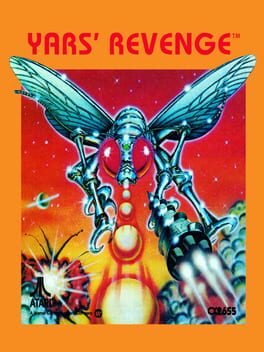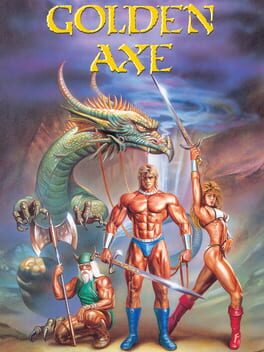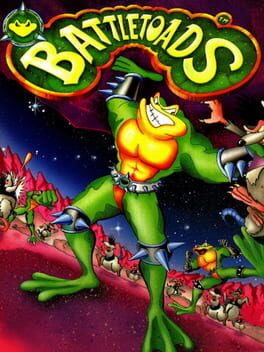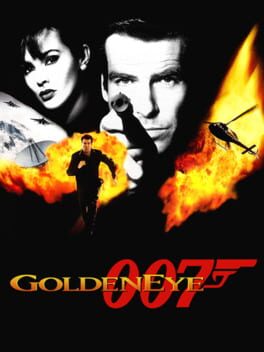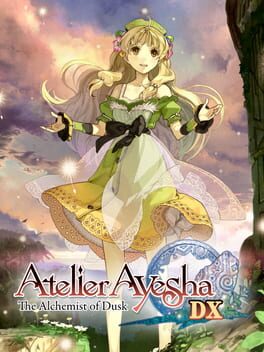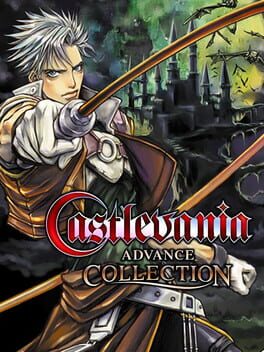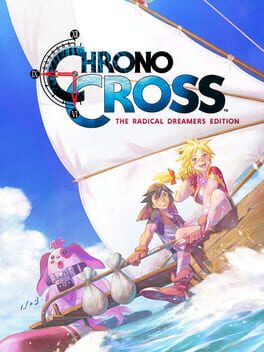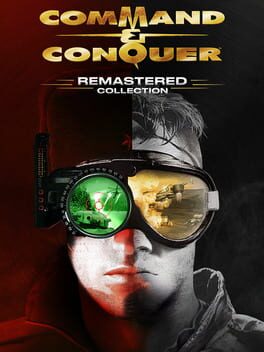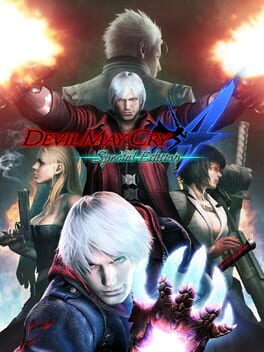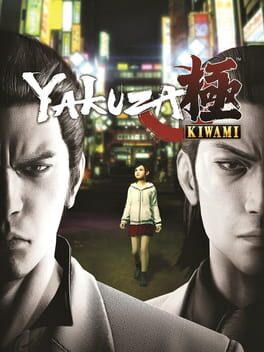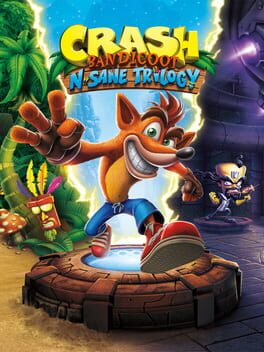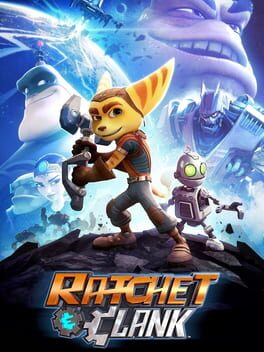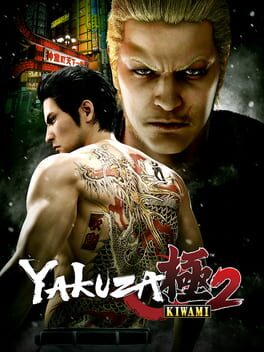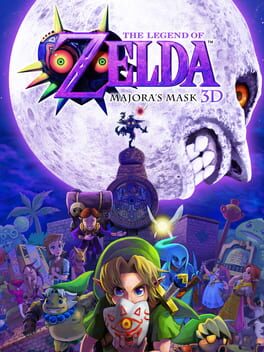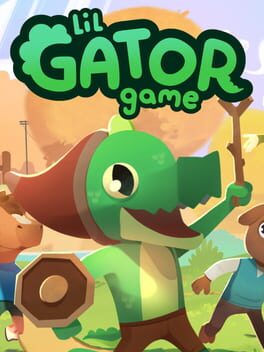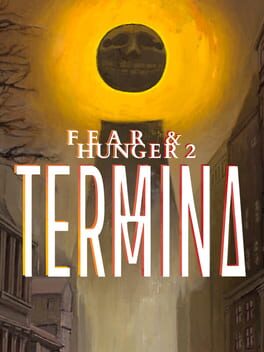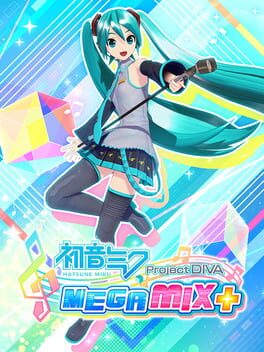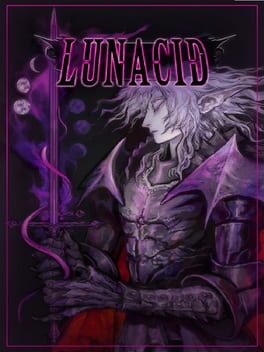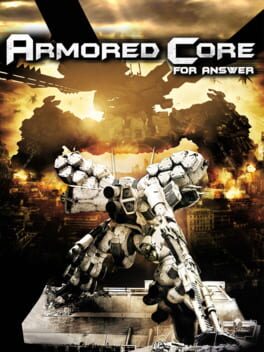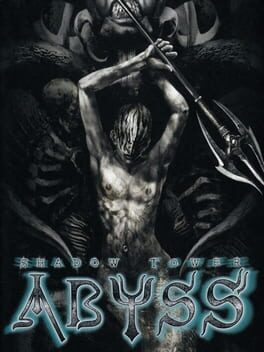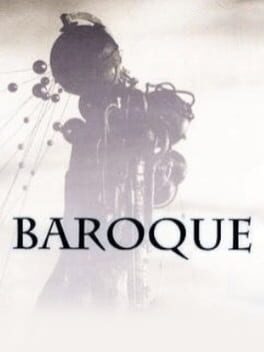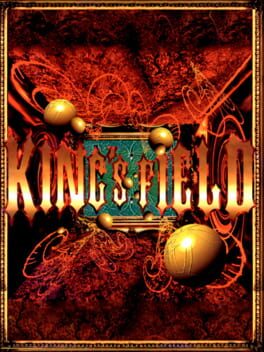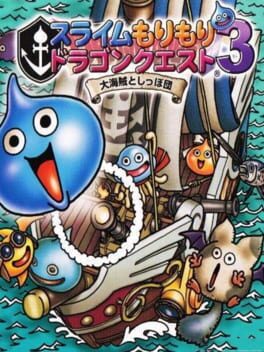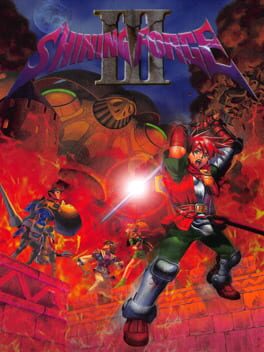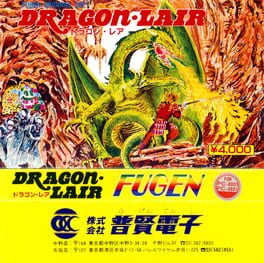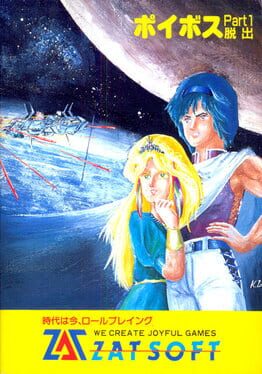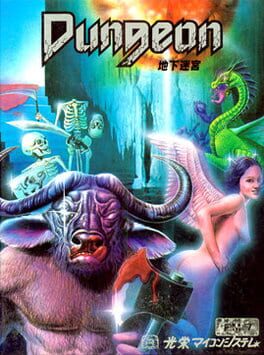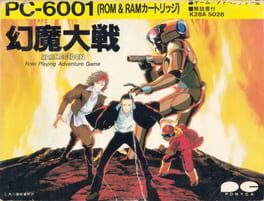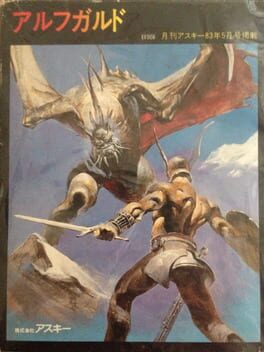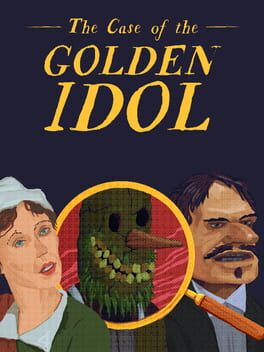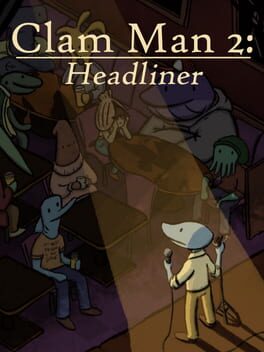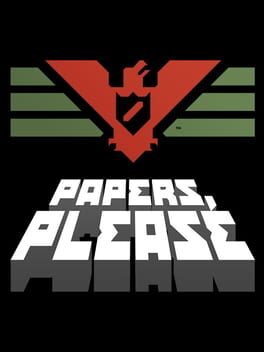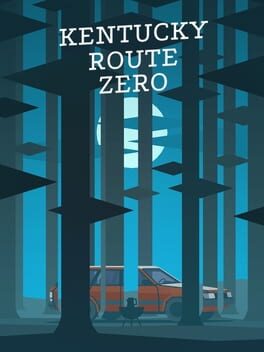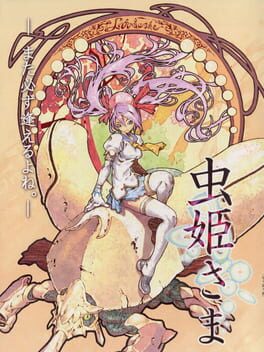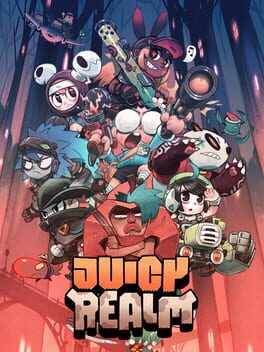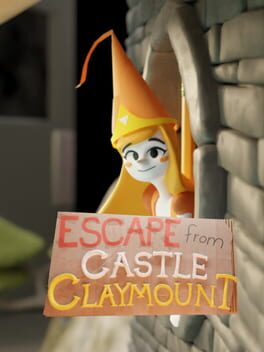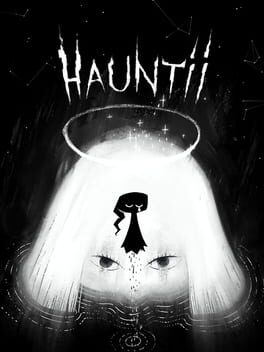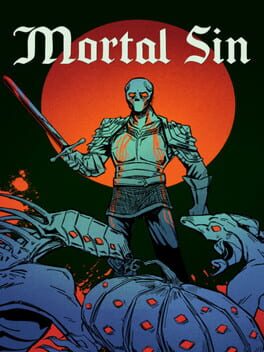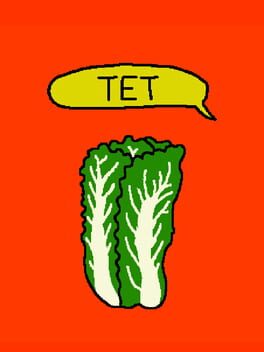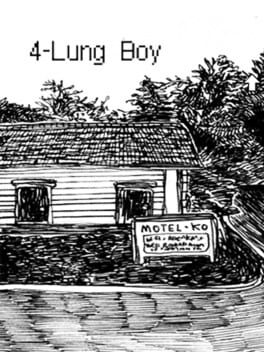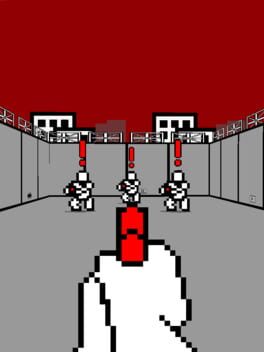Joas
7 reviews liked by Joas
L.O.L.: Lack of Love
2000
This review contains spoilers
This game echoes like a soft and compassionate war cry, asking to reconsider our Lack of Love.
"There is no comedy outside of what is strictly human. A landscape can be beautiful, graceful, sublime, insignificant or ugly; it will never be laughable. We will laugh at an animal, but because we will have surprised in it a human attitude or a human expression. We will laugh at a hat; but what we mock then is not the piece of felt or straw, it is the form that men have given it, it is the human caprice from which it has taken the mold. How has such an important fact, in its simplicity, not attracted the attention of philosophers? Many have defined man as “an animal who knows how to laugh”. They could just as well have defined it as an animal that makes people laugh, because if some other animal achieves this, or some inanimate object, it is by a resemblance to man, by the mark that man leaves on it or by the use that man makes of it"
- Henri Bergson, Laughter: An Essay on the Meaning of the Comic
"All the living hold together, and all yield to the same tremendous push. The animal takes its stand on the plant, man bestrides animality, and the whole of humanity, in space and in time, is one immense army galloping beside and before and behind each of us in an overwhelming charge able to beat down every resistance and clear the most formidable obstacles, perhaps even death."
- Henri Bergson, Creative Evolution
I wanted to start this review off with this quote from a French philosopher in his book on the comic, where he talks specifically about what it is we find funny and cute in non-human creatures. Admittedly, what I know of the book I have glanced from summaries, but it says most of it in the above quote: what we find funny in animals is the human pattern we have ordered upon them. Not that these patterns aren't real - the Fibonacci sequence for example is real and actually present among natural organisms such as plants, but we shouldn't take this as proof that humans can unlock the key to nature itself, a kind of colonialism over life itself, but rather that, in Bergson's radical conclusion, nature is one big march and that we are just one perspective in the middle of it, not above it. Like painting a still life that gets increasingly complex and abstract, say like a Cubist painting resembles the original scene it was based on, but the original scene is still there in the essence of the painting. The painting is abstract but always with immanence rather than transcendence, always a within and not an above. Point being: I think humans are within nature and just the next step from a march that was already there. The patterns and constellations we put on nature are real, but the stars were already there.
I'm not sure where I'm going with this myself - but let's take how this game constantly disorients your sense of space. For one, you start off as a very elementary organism, a little guy without eyes, almost like a jellyfish on land. You rise from the bottom of the sea, nearly being eaten by a fish. Soon after you arise, you see a creature just like yourself metamorphize into a larger creature. So you think: I want to do that.
When you do, after solving somewhat non-obvious puzzles (don't be ashamed to use a walkthrough), you get gifts from other creatures, and you can evolve into a black and white spotted little guy. In every game Kenichi Nishi has been involved in, you will see nods to his dog Tao, and while it's not apparent at first, the black and white spotted creature in their various increasingly dog-like transformations may be seen as this games nod to Tao. That's a neat little factoid as an aside.
Back to thinking of these evolutions: the very first time we evolve, we get an immediate change of scale. The whole first map is now relatively tiny, and the creatures that were imposing predators beforehand now are tiny little wimps (no offense to any of the animals in this game).
Games like Legend of Zelda: the Minish Cap are often championed as games that provide an amazing sense of scale, but Lack of Love is often left out of the conversation. A few levels after the first, IIRC, you get on a river and eventually get thrown off what was the back of a huge turtle-like creature. What an amazing change! It's almost like with each iteration of our evolution, we are laughing at what came before (a nod to the quote at the beginning), because what we thought was the entire world was simply a miniscule diorama.
The sense of scale this game gives you provokes not only simply wonder, however, but a real sense of terror. Essentially, and slight spoilers ahead, the plot goes like this: Earth has become an overpopulated, overly competitive industrial hell where the livestock have essentially been dying due to the toxic chemicals around and such. As such, the worlds space program sends a robot named, if I remember correctly, Halumi, to scope out another livable planet and make it suitable for humans.
When we first encounter Halumi, we have already become significantly larger than the creature we first got off the back of. However, we still pale in comparison to the power and size of Halumi, and we don't even match the size of their foot. Soon, (SPOILER) Halumi sets off a device of sorts which bulldozes the entire land you are standing on, and you only barely survive to end up in a barren wasteland full of dead creatures.
Of course, there is a moral grey area here, because what were the humans supposed to do? Is the paradise they eventually try to set up at the end of the game better or worse than the eat-or-be-eaten world of the animals (although at least that was more natural, and maybe not as painful as we ascribe it to be?) It brings up serious moral questions about what is artificial and natural. Yet, throughout all of this, the message is clear, we cannot insert ourselves above the environment. Yet the game itself isn't triumphant in this conclusion until perhaps the end - isn't it sad to have to restart on another planet, and how do we save our own? Isn't the whole game of survival a sad affair that we would rather avoid?
There are no easy answers.
Yet there is humor in this game, which is why I brought up the initial quote. There is a stupid pun about the games title: LOL, and how the game does not inspire laughs. Yet, I find myself disagreeing. The type of comedy we see here is non-verbal. It's seeing, for example, some dragonfly like creatures in one area hold a footrace, because it's like seeing something we as humans do that we didn't expect to see among animals. Then there are creatures who play hide-and-seek, who take a nap with you, etc. It's full of these small bouts of humor. The character designs are not without their quirks either - both of the animals themselves and of the artificial robotic people. In the last area, there is a robotic baby who guides you through the first maze of a test you have to undergo in order to be seen as the most "intelligent" and worthy of the creatures around you. More on that later. There are also some silly looking penguin-like bird creatures in one of the later areas.
Is there hope not only in this game but for us? The game leads us to answer this question, it leaves it completely open. If it's not the best game on the Dreamcast (I would almost say it is), it is the most aesthetically unique and possibly thematically challenging games on the console (along with games like DeSpiria)
The game itself is not always well designed - in fact it can be sadistically designed, maybe on purpose. Puzzles use moon logic, and one of the worst puzzles is near the end, where you have to do whole rooms full of sliding block puzzles within a timer of like 2 minutes. It kind of sucks.
There's no shame in using a guide, once again. It feels like this game was almost made for a guide.
Your health in this game is basically represented by a green sphere, surrounded by rings. The more up-going rings you have (which you get by eating food or other creatures) the more your health increases, if you have a ring going down, beware because that will deplete your life and when the sphere is gone, you are dead.
It's interesting, looking at the people who developed this game on it's MobyGames page, notably the late, great Ryuichi Sakamoto, we see a lot of future Skip members, but not a lot of Vanpool people. I find that interesting, because I would say this games spiritual successor in gameplay is "Endonesia" for the PS2. A game with similar survival aspects - and similar, albeit a more complex communication system (this game has a different function mapped to each of the buttons of the Dreamcast's controller, Endonesia uses a complex system of communicating via emotions you get from the enviroment).
If you've read to the end, thank you so much. This is probably only my first draft of this review. Highly recommend this game, if there's ever a Dreamcast mini, this practically needs to be on there.
"There is no comedy outside of what is strictly human. A landscape can be beautiful, graceful, sublime, insignificant or ugly; it will never be laughable. We will laugh at an animal, but because we will have surprised in it a human attitude or a human expression. We will laugh at a hat; but what we mock then is not the piece of felt or straw, it is the form that men have given it, it is the human caprice from which it has taken the mold. How has such an important fact, in its simplicity, not attracted the attention of philosophers? Many have defined man as “an animal who knows how to laugh”. They could just as well have defined it as an animal that makes people laugh, because if some other animal achieves this, or some inanimate object, it is by a resemblance to man, by the mark that man leaves on it or by the use that man makes of it"
- Henri Bergson, Laughter: An Essay on the Meaning of the Comic
"All the living hold together, and all yield to the same tremendous push. The animal takes its stand on the plant, man bestrides animality, and the whole of humanity, in space and in time, is one immense army galloping beside and before and behind each of us in an overwhelming charge able to beat down every resistance and clear the most formidable obstacles, perhaps even death."
- Henri Bergson, Creative Evolution
I wanted to start this review off with this quote from a French philosopher in his book on the comic, where he talks specifically about what it is we find funny and cute in non-human creatures. Admittedly, what I know of the book I have glanced from summaries, but it says most of it in the above quote: what we find funny in animals is the human pattern we have ordered upon them. Not that these patterns aren't real - the Fibonacci sequence for example is real and actually present among natural organisms such as plants, but we shouldn't take this as proof that humans can unlock the key to nature itself, a kind of colonialism over life itself, but rather that, in Bergson's radical conclusion, nature is one big march and that we are just one perspective in the middle of it, not above it. Like painting a still life that gets increasingly complex and abstract, say like a Cubist painting resembles the original scene it was based on, but the original scene is still there in the essence of the painting. The painting is abstract but always with immanence rather than transcendence, always a within and not an above. Point being: I think humans are within nature and just the next step from a march that was already there. The patterns and constellations we put on nature are real, but the stars were already there.
I'm not sure where I'm going with this myself - but let's take how this game constantly disorients your sense of space. For one, you start off as a very elementary organism, a little guy without eyes, almost like a jellyfish on land. You rise from the bottom of the sea, nearly being eaten by a fish. Soon after you arise, you see a creature just like yourself metamorphize into a larger creature. So you think: I want to do that.
When you do, after solving somewhat non-obvious puzzles (don't be ashamed to use a walkthrough), you get gifts from other creatures, and you can evolve into a black and white spotted little guy. In every game Kenichi Nishi has been involved in, you will see nods to his dog Tao, and while it's not apparent at first, the black and white spotted creature in their various increasingly dog-like transformations may be seen as this games nod to Tao. That's a neat little factoid as an aside.
Back to thinking of these evolutions: the very first time we evolve, we get an immediate change of scale. The whole first map is now relatively tiny, and the creatures that were imposing predators beforehand now are tiny little wimps (no offense to any of the animals in this game).
Games like Legend of Zelda: the Minish Cap are often championed as games that provide an amazing sense of scale, but Lack of Love is often left out of the conversation. A few levels after the first, IIRC, you get on a river and eventually get thrown off what was the back of a huge turtle-like creature. What an amazing change! It's almost like with each iteration of our evolution, we are laughing at what came before (a nod to the quote at the beginning), because what we thought was the entire world was simply a miniscule diorama.
The sense of scale this game gives you provokes not only simply wonder, however, but a real sense of terror. Essentially, and slight spoilers ahead, the plot goes like this: Earth has become an overpopulated, overly competitive industrial hell where the livestock have essentially been dying due to the toxic chemicals around and such. As such, the worlds space program sends a robot named, if I remember correctly, Halumi, to scope out another livable planet and make it suitable for humans.
When we first encounter Halumi, we have already become significantly larger than the creature we first got off the back of. However, we still pale in comparison to the power and size of Halumi, and we don't even match the size of their foot. Soon, (SPOILER) Halumi sets off a device of sorts which bulldozes the entire land you are standing on, and you only barely survive to end up in a barren wasteland full of dead creatures.
Of course, there is a moral grey area here, because what were the humans supposed to do? Is the paradise they eventually try to set up at the end of the game better or worse than the eat-or-be-eaten world of the animals (although at least that was more natural, and maybe not as painful as we ascribe it to be?) It brings up serious moral questions about what is artificial and natural. Yet, throughout all of this, the message is clear, we cannot insert ourselves above the environment. Yet the game itself isn't triumphant in this conclusion until perhaps the end - isn't it sad to have to restart on another planet, and how do we save our own? Isn't the whole game of survival a sad affair that we would rather avoid?
There are no easy answers.
Yet there is humor in this game, which is why I brought up the initial quote. There is a stupid pun about the games title: LOL, and how the game does not inspire laughs. Yet, I find myself disagreeing. The type of comedy we see here is non-verbal. It's seeing, for example, some dragonfly like creatures in one area hold a footrace, because it's like seeing something we as humans do that we didn't expect to see among animals. Then there are creatures who play hide-and-seek, who take a nap with you, etc. It's full of these small bouts of humor. The character designs are not without their quirks either - both of the animals themselves and of the artificial robotic people. In the last area, there is a robotic baby who guides you through the first maze of a test you have to undergo in order to be seen as the most "intelligent" and worthy of the creatures around you. More on that later. There are also some silly looking penguin-like bird creatures in one of the later areas.
Is there hope not only in this game but for us? The game leads us to answer this question, it leaves it completely open. If it's not the best game on the Dreamcast (I would almost say it is), it is the most aesthetically unique and possibly thematically challenging games on the console (along with games like DeSpiria)
The game itself is not always well designed - in fact it can be sadistically designed, maybe on purpose. Puzzles use moon logic, and one of the worst puzzles is near the end, where you have to do whole rooms full of sliding block puzzles within a timer of like 2 minutes. It kind of sucks.
There's no shame in using a guide, once again. It feels like this game was almost made for a guide.
Your health in this game is basically represented by a green sphere, surrounded by rings. The more up-going rings you have (which you get by eating food or other creatures) the more your health increases, if you have a ring going down, beware because that will deplete your life and when the sphere is gone, you are dead.
It's interesting, looking at the people who developed this game on it's MobyGames page, notably the late, great Ryuichi Sakamoto, we see a lot of future Skip members, but not a lot of Vanpool people. I find that interesting, because I would say this games spiritual successor in gameplay is "Endonesia" for the PS2. A game with similar survival aspects - and similar, albeit a more complex communication system (this game has a different function mapped to each of the buttons of the Dreamcast's controller, Endonesia uses a complex system of communicating via emotions you get from the enviroment).
If you've read to the end, thank you so much. This is probably only my first draft of this review. Highly recommend this game, if there's ever a Dreamcast mini, this practically needs to be on there.
Interesting deconstruction of the Harvest Moon genre - instead, the game focuses on a farm where it's hard to get by - where your town is nothing but a stopover for tourists and the rich on the way to the moon. Will you stay despite the routine and mundanity? Or leave everyone you meet behind for "The Moon?"
It's nice to see the few familiar faces also getting by, getting used to their rhythms, sometimes odd ones. I enjoyed the way some expanses of wilderness were just sitting next to your farm, full of some strange items that I never figured out the use for. Lovely art too!
Now to digress, generally speaking farming games make me wonder more about like - how do farmers live life and make meaning? Can a game express that...? The Harvest Moon format of farming games is obviously so stale and worn out... but I still think there's some kind of truth to life that the format of 'planting crops/gardening' could still convey. I like that this game tries to explore that format, even if I found the moment-to-moment kind of unengaging (even though that is of course, partially the point).
Farm work, I assume, is physically grueling. But is there something fun or satisfying in that? Something unique that establishes particular rhythms of life for farmers of different types around the world?
Beyond the typical HM-loop of watering my squares and selling the pixel vegetables for money every few days?
It's nice to see the few familiar faces also getting by, getting used to their rhythms, sometimes odd ones. I enjoyed the way some expanses of wilderness were just sitting next to your farm, full of some strange items that I never figured out the use for. Lovely art too!
Now to digress, generally speaking farming games make me wonder more about like - how do farmers live life and make meaning? Can a game express that...? The Harvest Moon format of farming games is obviously so stale and worn out... but I still think there's some kind of truth to life that the format of 'planting crops/gardening' could still convey. I like that this game tries to explore that format, even if I found the moment-to-moment kind of unengaging (even though that is of course, partially the point).
Farm work, I assume, is physically grueling. But is there something fun or satisfying in that? Something unique that establishes particular rhythms of life for farmers of different types around the world?
Beyond the typical HM-loop of watering my squares and selling the pixel vegetables for money every few days?
This review contains spoilers
In the beginning, there was nothing.
And then, there was Stardew Valley.
And so, the Cozy Game was born.
This is a narrative written and retold countless times in the minds and bodies of games-players the world over. It is the foundational text upon which a million pixelated seeds have been sown. It is a narrative written and retold by those with no memory.
Stardew’s popularity and immense financial success has spurred multitudinous imitators: the once-short lineage from Story of Seasons (nee Harvest Moon), to Rune Factory, to Stardew Valley, has now expanded to a monstrous family tree beyond comprehension.
And yet - the Farming Game / Life Sim remains a genre buried beneath a mountain of tropes. It is elaborated via a school of game design best equated to a bingo scorecard.
There is a fundamental strangeness to the homogeneity of farming games’ ‘cozy’' tone. It abstracts farming into something it is not -- into the kind of farming imagined by a gradeschool child.
I have a close family friend who worked on a farm in his younger years. He has taught me which animals sound most human when they cry for their mercy at the end.
Farming is difficult. It is unforgiving. It is unglamorous. It exists across an immense gulf from its beloved gaming facsimiles.
This has upsides. There are people in my life who have become avid players of games entirely because of the welcoming tonality of "Wholesome Games". Video games are a historically male space dominated by Gun Dudes with gravelly voices, and I'm glad to see a shift towards something more welcoming.
But another part of me feels like I'm watching an industry consuming and regurgitating the same video game ad infinitum. A cutesy farming ouroboros.
The Cozy Farming Game is to the early 2020s as the Brown Murder Shooter was to the early 2010s. Neither flavor of game is inherently bad. I enjoy partaking in both from time to time. But both reflect a failure to explore the depths of the medium.
The latter half of the last decade saw the brown shooter finally evolving. Games like Titanfall 2, Dusk, Doom Eternal, Wolfenstein: The New Order, and Spec Ops: The Line marked a shift in market tendency. The genre was in conversation with itself - for better or worse.
Regardless of whether or not these games were good, many games-players, me included, were happy to be playing something Similar but Different. A development upon genre; a genesis of new subgenre.
Before the Green Moon makes me excited about the future of the farming game. It is the first of its kind to make me feel something meaningful, that I will carry with me forever.
Its foundation is that of standard farming game fare - there are seeds to be sown, dead weeds to be mown, rocks to be excavated, and relationships to be navigated. But Before the Green moon appears immediately distinct from its peers from the moment the game begins.
Stardew Valley begins with your player-character escaping to the countryside to work on a farm of your own, inherited from your grandfather. You are absconding from a corporate office job where the fruits of your labor are enjoyed by uncaring C-level executives, so you can instead grow literal fruit to your own benefit.
Farming is portrayed as movement away from systemic capitalism; as an idyllic and self-sustaining method of enjoying one's life; as a movement towards a personable community that rejects the anonymity of city life. Every citizen of your small town is an individual whose inner life you are encouraged to understand for both narrative and mechanical benefit. You can fall in love. You can get married. The late game is an everlasting dream of love and small-town living. It portrays this world of cute chickens and fishing minigames by way of a vibrantly colored and super-nintendo-esque render.
Before the Green Moon is rendered in a blurry-textured N64-like manner, with blobby characters and sharp environmental vertices. You are not going to farm for fun - you are farming to get paid. This is not your farm - it is a corporate farm, in a ruined town, whose population is largely faceless. Some stranger used this farm before you, and you will never know so much as their name. It is overgrown with weeds. Only the bare minimum tools remain. It is the farm of someone who maybe once loved it, but who has since moved on and left it in a state of disrepair.
The planet is dying. It is a desiccated husk of what it once was, and the rich have already left it behind. They have learned to terraform, and live now on a Green Moon. Your planet still has some use, though: farming. Seeds are sent down a space elevator to be planted, and are then sent back up in exchange for money. More cynically, you could consider it company scrip. This scrip can then be exchanged for tools and resources, which are also sent via the elevator. Characters around you remark on occasion that, if the moon folk could ever learn to farm efficiently up there on their green rock, then they'll have no further use for those who still live below. In this way, the exchange of your crops for scrip allows you to survive on your barren world, but simultaneously funds the research that would ultimately doom its inhabitants.
You have come to town to farm. You have come to town to farm for money. You have come to town to farm for money so that you can buy a ticket to the moon, and leave it all behind.
What do you invest in that sort of transient life?
It is, in a way, a bit like going to college. From the moment you arrive, any friend you make will almost certainly one day be a person you Once Knew, but now know only through distant photos. Perhaps an occasional phonecall. Perhaps a rare visit, to reminisce upon the people you were then, but can scarcely recall. It is a place Between. A place After. A place Before. As all places are.
Before the Green Moon makes this far more poignant in that, in order to properly attend to your farm each day, you rarely have enough time to connect with the people around you. A daily communion, a moment fishing with a friend, a conversation with the strange kid out back, an afternoon hunting for chickens to bring home and care for - these moments are all there to be had, but there's so little space for them when you're busy watering tobacco plants.
Better yet - the game never forces you to leave. During your first week at the farm, you're told the price of a Ticket to The Moon. You do not ever have to buy this ticket. Even if you do, your only reward will be seeing the game end. You can spend every day talking with your neighbors and grilling up fish from the reservoir, forever, if you like. You can spend every dollar you make on chicken feed and bedroom decor. You can find love, and spend every day visiting your partner.
Even so - as you continue to rake in the moon-scrip, there will eventually come a moment when you realize you nearly have enough money for the ticket. You can look at the calendar, see the next scheduled day when the elevator will come and go, and realize that, if you want, you could leave along with it.
I had this moment, and considered staying, just for one more season. And then, in the coming in-game days, perhaps by coincidence, it seemed like I had started to exhaust the game's content. A new feeling set in - that there was nothing left for me here. That it was time to go.
So I bought the ticket.
I said my goodbyes to everyone I'd met. My in-game partner cried. They knew, deep down, that I would leave one day, but had hoped against hope that I would stay for them. I still had five more days - but every day, I'd receive the same dialogue from the other characters, over and over. I stopped planting seeds. I let my remaining crops die. I dumped my tools into storage. I left the farm as I'd found it: Dead. Abandoned. Overgrown. The last two days, I went to bed early. There was nothing to stay awake for.
On the final day, I ran through town one last time. I shuffled through the anonymous crowd of other moongoers. I made my way to the elevator. It was already evening.
A character who had gone missing earlier in the plot suddenly returned. No matter what I tried, I couldn't get them to trigger a farewell dialogue. I realized that it might not be possible to trigger both their return and their farewell dialogue on the same day. If I was right, I'd have to stay til the morning to say goodbye. I checked the calendar. I could stay a while longer, just to get closure with this one friend, my favorite character in the whole cast - but I would have to spend two weeks in an empty town of people with nothing to say to me; with a farm I'd already let wither.
I still don't know if there actually was a farewell dialogue to trigger or not. I'd rather never know. With just an hour left in the day, I rushed onto the elevator.
Once on the elevator, you get tucked away into a small room. The decor is sparse, grey, utilitarian. A single window gives a view out into space.
The elevator's ascent is slow. It is quiet. There is little to do but watch the planet fall away from view.
At the end of each in-game season, the town gathers to watch the green moon rise. A moon-viewing party. The cast of characters takes a moment to reflect. It is a quiet moment of companionship.
As the elevator approaches the peak of its ascent, the green moon falls into frame from above. Here, alone, in a sterile box a quarter-million miles above the earth, you hold a final moon-viewing party for one.
The moon fills the frame. Its atmosphere is as thick, green, and opaque as it was from the earth. And then, having never seen the moon's surface, and without ever learning what waits for you there, the credits roll.
You've already seen everything the game has to offer you. It's offered up everything it had ever promised: the digital facsimile of a farm, of a town, of a home, of a ruined wasteland, of where you left your friends behind, where you lived back then, in a different time, Before the Green Moon.
And then, there was Stardew Valley.
And so, the Cozy Game was born.
This is a narrative written and retold countless times in the minds and bodies of games-players the world over. It is the foundational text upon which a million pixelated seeds have been sown. It is a narrative written and retold by those with no memory.
Stardew’s popularity and immense financial success has spurred multitudinous imitators: the once-short lineage from Story of Seasons (nee Harvest Moon), to Rune Factory, to Stardew Valley, has now expanded to a monstrous family tree beyond comprehension.
And yet - the Farming Game / Life Sim remains a genre buried beneath a mountain of tropes. It is elaborated via a school of game design best equated to a bingo scorecard.
There is a fundamental strangeness to the homogeneity of farming games’ ‘cozy’' tone. It abstracts farming into something it is not -- into the kind of farming imagined by a gradeschool child.
I have a close family friend who worked on a farm in his younger years. He has taught me which animals sound most human when they cry for their mercy at the end.
Farming is difficult. It is unforgiving. It is unglamorous. It exists across an immense gulf from its beloved gaming facsimiles.
This has upsides. There are people in my life who have become avid players of games entirely because of the welcoming tonality of "Wholesome Games". Video games are a historically male space dominated by Gun Dudes with gravelly voices, and I'm glad to see a shift towards something more welcoming.
But another part of me feels like I'm watching an industry consuming and regurgitating the same video game ad infinitum. A cutesy farming ouroboros.
The Cozy Farming Game is to the early 2020s as the Brown Murder Shooter was to the early 2010s. Neither flavor of game is inherently bad. I enjoy partaking in both from time to time. But both reflect a failure to explore the depths of the medium.
The latter half of the last decade saw the brown shooter finally evolving. Games like Titanfall 2, Dusk, Doom Eternal, Wolfenstein: The New Order, and Spec Ops: The Line marked a shift in market tendency. The genre was in conversation with itself - for better or worse.
Regardless of whether or not these games were good, many games-players, me included, were happy to be playing something Similar but Different. A development upon genre; a genesis of new subgenre.
Before the Green Moon makes me excited about the future of the farming game. It is the first of its kind to make me feel something meaningful, that I will carry with me forever.
Its foundation is that of standard farming game fare - there are seeds to be sown, dead weeds to be mown, rocks to be excavated, and relationships to be navigated. But Before the Green moon appears immediately distinct from its peers from the moment the game begins.
Stardew Valley begins with your player-character escaping to the countryside to work on a farm of your own, inherited from your grandfather. You are absconding from a corporate office job where the fruits of your labor are enjoyed by uncaring C-level executives, so you can instead grow literal fruit to your own benefit.
Farming is portrayed as movement away from systemic capitalism; as an idyllic and self-sustaining method of enjoying one's life; as a movement towards a personable community that rejects the anonymity of city life. Every citizen of your small town is an individual whose inner life you are encouraged to understand for both narrative and mechanical benefit. You can fall in love. You can get married. The late game is an everlasting dream of love and small-town living. It portrays this world of cute chickens and fishing minigames by way of a vibrantly colored and super-nintendo-esque render.
Before the Green Moon is rendered in a blurry-textured N64-like manner, with blobby characters and sharp environmental vertices. You are not going to farm for fun - you are farming to get paid. This is not your farm - it is a corporate farm, in a ruined town, whose population is largely faceless. Some stranger used this farm before you, and you will never know so much as their name. It is overgrown with weeds. Only the bare minimum tools remain. It is the farm of someone who maybe once loved it, but who has since moved on and left it in a state of disrepair.
The planet is dying. It is a desiccated husk of what it once was, and the rich have already left it behind. They have learned to terraform, and live now on a Green Moon. Your planet still has some use, though: farming. Seeds are sent down a space elevator to be planted, and are then sent back up in exchange for money. More cynically, you could consider it company scrip. This scrip can then be exchanged for tools and resources, which are also sent via the elevator. Characters around you remark on occasion that, if the moon folk could ever learn to farm efficiently up there on their green rock, then they'll have no further use for those who still live below. In this way, the exchange of your crops for scrip allows you to survive on your barren world, but simultaneously funds the research that would ultimately doom its inhabitants.
You have come to town to farm. You have come to town to farm for money. You have come to town to farm for money so that you can buy a ticket to the moon, and leave it all behind.
What do you invest in that sort of transient life?
It is, in a way, a bit like going to college. From the moment you arrive, any friend you make will almost certainly one day be a person you Once Knew, but now know only through distant photos. Perhaps an occasional phonecall. Perhaps a rare visit, to reminisce upon the people you were then, but can scarcely recall. It is a place Between. A place After. A place Before. As all places are.
Before the Green Moon makes this far more poignant in that, in order to properly attend to your farm each day, you rarely have enough time to connect with the people around you. A daily communion, a moment fishing with a friend, a conversation with the strange kid out back, an afternoon hunting for chickens to bring home and care for - these moments are all there to be had, but there's so little space for them when you're busy watering tobacco plants.
Better yet - the game never forces you to leave. During your first week at the farm, you're told the price of a Ticket to The Moon. You do not ever have to buy this ticket. Even if you do, your only reward will be seeing the game end. You can spend every day talking with your neighbors and grilling up fish from the reservoir, forever, if you like. You can spend every dollar you make on chicken feed and bedroom decor. You can find love, and spend every day visiting your partner.
Even so - as you continue to rake in the moon-scrip, there will eventually come a moment when you realize you nearly have enough money for the ticket. You can look at the calendar, see the next scheduled day when the elevator will come and go, and realize that, if you want, you could leave along with it.
I had this moment, and considered staying, just for one more season. And then, in the coming in-game days, perhaps by coincidence, it seemed like I had started to exhaust the game's content. A new feeling set in - that there was nothing left for me here. That it was time to go.
So I bought the ticket.
I said my goodbyes to everyone I'd met. My in-game partner cried. They knew, deep down, that I would leave one day, but had hoped against hope that I would stay for them. I still had five more days - but every day, I'd receive the same dialogue from the other characters, over and over. I stopped planting seeds. I let my remaining crops die. I dumped my tools into storage. I left the farm as I'd found it: Dead. Abandoned. Overgrown. The last two days, I went to bed early. There was nothing to stay awake for.
On the final day, I ran through town one last time. I shuffled through the anonymous crowd of other moongoers. I made my way to the elevator. It was already evening.
A character who had gone missing earlier in the plot suddenly returned. No matter what I tried, I couldn't get them to trigger a farewell dialogue. I realized that it might not be possible to trigger both their return and their farewell dialogue on the same day. If I was right, I'd have to stay til the morning to say goodbye. I checked the calendar. I could stay a while longer, just to get closure with this one friend, my favorite character in the whole cast - but I would have to spend two weeks in an empty town of people with nothing to say to me; with a farm I'd already let wither.
I still don't know if there actually was a farewell dialogue to trigger or not. I'd rather never know. With just an hour left in the day, I rushed onto the elevator.
Once on the elevator, you get tucked away into a small room. The decor is sparse, grey, utilitarian. A single window gives a view out into space.
The elevator's ascent is slow. It is quiet. There is little to do but watch the planet fall away from view.
At the end of each in-game season, the town gathers to watch the green moon rise. A moon-viewing party. The cast of characters takes a moment to reflect. It is a quiet moment of companionship.
As the elevator approaches the peak of its ascent, the green moon falls into frame from above. Here, alone, in a sterile box a quarter-million miles above the earth, you hold a final moon-viewing party for one.
The moon fills the frame. Its atmosphere is as thick, green, and opaque as it was from the earth. And then, having never seen the moon's surface, and without ever learning what waits for you there, the credits roll.
You've already seen everything the game has to offer you. It's offered up everything it had ever promised: the digital facsimile of a farm, of a town, of a home, of a ruined wasteland, of where you left your friends behind, where you lived back then, in a different time, Before the Green Moon.
Off-Peak
2015
Shenmue
1999
What does it mean to explore a world?
In a prior review, I discussed and explored my feelings on a world segmented into individual explorable levels, each so tightly-paced and dense in content that the joy of exploration never let up. A lot of collectathons strive to reach this kind of collectible-hunting nirvana, and its part of the DNA that they share with Metroidvanias. Indeed, there exist entire video games genres effectively based around the pure gameplay enjoyment of exploring virtual worlds.
Yet there’s always been a second side to that coin. A world as described above can’t often be described as a breathing one, can it? When every collectible is laid out just to tickle the player’s neurons right, all level design invites you to stay for just as long as is needed, every character created to fill a need, and so on. As pleasant as these worlds may be, its hard to shake the feeling of simply being a vacationer on a tourguide, a hero with a trail of breadcrumbs always guiding them toward the sword in the stone. And for all the faults the game may otherwise have, this is the area in which the original Shenmue truly shines: making you feel part of its distinctly living, breathing world.
After having the scene set by an opening cutscene, new players may realize just how little is given to them in the way of guidance. Navigating Ryo’s house alone can feel daunting, trapped by narrow passages with an extremely unorthodox, slow control scheme. Indeed, Despite an action-packed opening, what you’ll spend the next segment of the game doing can best be described as meandering. And you’re sure to have heard it all before in gaming discourse: Every passerby you see in Shenmue has a name, a personality, a schedule they adhere to, and hobbies and jobs that influence what they tell you. What’s effectively a point-and-click adventure game mixed with occasional fighting game segments turns into something entirely new once you realize just how little the game actually tries to help you in both areas. As Ryo Hazuki, the only things you can truly rely on are a notebook, a pair of shoes, and the roads they tread.
Though not a game with any sort of branching story, it is still one that understands and reacts to every little piece of the narrative, and one that truly wants you to pay attention to those small changes overtime. Just as every NPC has their own life, their dialogue evolves with each little progression made in the story, gradually giving Ryo the chance to hear the thoughts on every character as you approach the story’s dark truths. Yet for as much there is to find in Shenmue’s world, there’s no fast travel, no indication of what doing certain tasks will really achieve, no HUD beyond the clock on your arm and the road that lies ahead. Brimming with secrets, yet not privy to guide you to them: Its a game that, in the most pure form possible, strives to hide its gaminess, and wants you to simply engage with its world without thought to its objective.
That isn’t to say that a greater objective isn’t present, of course. The game tells an engaging mystery as you navigate Ryo from person to person, place to place, learning more about the circumstances of both his fathers death and their family’s place in the world. A lot has been said about Ryo’s stoicness and generally wooden expressiveness, but I don’t believe with any part of me that this was a writing error: The game is as much a story about Ryo solving a mystery as it is him slowly figuring out his place in the world. Ryo is a guy with a mission, yet time and time again during the adventure you’re reminded that he IS just a normal teenager - his classmates worry about him, the locals greet him with a smile and tells him to take care, and always warn him to be careful getting further into the dark world that took his father’s life. Through the slow mundanity of everyday gameplay, you get a lot of time to reflect on these things alongside Ryo as you walk the streets of Dobuita. Ryo really wants to avenge his father, but…everyone is so happy to just have him alive here, why can’t that be enough?
And I think that dilemma, that aspect of Ryo’s character, makes the kind of slow and meandering gameplay fit him so well. There’s such a brilliant clash from day and night in the game, going from visiting all the local residents and asking them about what’s been happening recently, to getting into fights in bars or sneaking into secret warehouses whilst avoiding cops. Much like Ryo’s own life, there’s two sides of the game playing out, one filled with excitement and danger and the other filled with love and tranquility. For as nice as all those action scenes are, and as well directed as the QTE sequences can be…many times I’d wish for them to end, just to be able to step foot in that beautiful little town again.
24 years on from its original release, it really can’t be overstated just how beautiful the original Shenmue still is. The character models sit in that perfect sweet spot between reality and abstraction, appearing as sculptured dolls with enchanting expressionwork, and the world they inhabit is filled with life around every corner. Its hard to not get goosebumps as night falls at 7PM, and get shown some absolutely beautiful shots of the area you’re currently in. The different parts of the world are so lovingly crafted, dense with life, that it becomes second nature to navigate this little world without the need for a map. Shenmue is, in fact, so confident in this that it flat out doesn’t give the player a map, outside of signs placed about scattershot around the world. All of this is topped off with beautifully expressive fighting animations as you engage in combat, with some of the most satisfying hit sounds you’ll ever hear in a game.
There’s something so fascinating about playing a game clearly filled with money and polish around every corner, yet still so confident in its own vision that its willing to completely shrug its shoulders upon being asked where to go next. Beyond the lack of a map, the game obfuscates how to really unlock its new fighting techniques, hiding some away until you’re able to fully utilize its button input. The game lets you, and encourages you to, pick up every single little trinket, open every single drawer, inspect almost every thing you can buy at stores, as Ryo physically picks it up - and never informs you on if this is something worth doing for progression or not. The game lets you buy drinks from vending machines and pick freely between several different flavors, again without ever hinting at its purpose in gameplay. The game features a full gallery of collectible figures, which you obtain simply by playing a gachapon machine with no clear end goal in sight. As said before, engaging with Shenmue is akin to engaging with a game that doesn’t want to be perceived as a game, or rather, like you’re literally stepping into the shoes of a teenager in a world just as confusingly unclear as ours. And sure, much like Ryo, you’ll get newfound determination when an objective is in sight: the Forklift racing segments pit you against 7 other forklift drivers in a makeshift race course and provide tons of adrenaline and excitement, yet… still leaves you unsure of what you’ve truly achieved at the end of each race.
Win or lose, it’s still just…another day at the job. Another safe, regular, uneventful day.
The days go by, and Ryo feels as if he’s slowly inching closer to his goal, but…is that progression really worth it? Like a Ying and Yang, both Shenmue and Ryo simultaneously want to remain leisurely confused in the place they call home, whilst also longing to boldly move forward in the world. In all the game’s calm moments, Ryo remains as focused as ever on hunting down the man who killed his father, consumed by a wish for revenge, and those close to him repeatedly try to tell him just how dark of a path he’s heading down. Yet Ryo stays so laser-focused on this one incident, because the Hazuki clan is the only thing in his life that ever processed to him as giving him purpose. Even with several good friends, a caring adoptive family, a community he cherishes, and eventually a stable job with coworkers he gets along with well, Ryo is just unable to disconnect himself from the clan, even if doing so would lead to a safer, happier life.
And I do genuinely believe there is a metanarrative of sorts here: We as players crave the excitement of fights and action scenes, and may end up more frustrated than at peace with the many times you’re encouraged to simply spend time in Shenmue’s world. Its almost unfathomable to suggest to players today that Shenmue’s lack of excitement is part of its appeal, because so much of what the industry wants is action, drama, excitement, tension, progression, and so on. Shenmue finds so much worth in the mundane, yet Ryo seems to reject it at every chance to pursue a dark truth, one that will undoubtedly make his life worse to bear, just for that sense of closure. And really, everyone wishes for some sort of closure: For instance, during the 24 years since the original game released, Shenmue fans too have waited for for an ending to Ryo’s story, with none in sight even after a kickstarted third game. But beyond that, we wish for closure in our day-to-day lives: To find a job that satisfies our every wish, to find something in life that never stops making us happy, to not keep getting fucked over by the shitty hands life deals us…
When you’re racing, your mind thinks solely of the finish line.
When you’re playing a game, you think solely of the progress made.
When you’re working, you think solely of the deadline.
And when you give yourself a goal, it’s easy to ignore all the beauty life has to offer, just for the sake of achieving it.
It can be hard, damn near impossible at times, to tell yourself to enjoy life for its pointlessness - to smell the roses not for an achievement, but for yourself. Shenmue tells you to relish those moments for as long as you can: To inspect every item, talk to every person, observe every building, listen to every cassette tape, and take as many breaths in its unforgiving, perfectly constructed world as you please. Because the boat to Hong Kong is a one-way ticket - once Ryo leaves, it’s too late for regrets.
[Playtime: ???]
[Key Word: Purpose]
In a prior review, I discussed and explored my feelings on a world segmented into individual explorable levels, each so tightly-paced and dense in content that the joy of exploration never let up. A lot of collectathons strive to reach this kind of collectible-hunting nirvana, and its part of the DNA that they share with Metroidvanias. Indeed, there exist entire video games genres effectively based around the pure gameplay enjoyment of exploring virtual worlds.
Yet there’s always been a second side to that coin. A world as described above can’t often be described as a breathing one, can it? When every collectible is laid out just to tickle the player’s neurons right, all level design invites you to stay for just as long as is needed, every character created to fill a need, and so on. As pleasant as these worlds may be, its hard to shake the feeling of simply being a vacationer on a tourguide, a hero with a trail of breadcrumbs always guiding them toward the sword in the stone. And for all the faults the game may otherwise have, this is the area in which the original Shenmue truly shines: making you feel part of its distinctly living, breathing world.
After having the scene set by an opening cutscene, new players may realize just how little is given to them in the way of guidance. Navigating Ryo’s house alone can feel daunting, trapped by narrow passages with an extremely unorthodox, slow control scheme. Indeed, Despite an action-packed opening, what you’ll spend the next segment of the game doing can best be described as meandering. And you’re sure to have heard it all before in gaming discourse: Every passerby you see in Shenmue has a name, a personality, a schedule they adhere to, and hobbies and jobs that influence what they tell you. What’s effectively a point-and-click adventure game mixed with occasional fighting game segments turns into something entirely new once you realize just how little the game actually tries to help you in both areas. As Ryo Hazuki, the only things you can truly rely on are a notebook, a pair of shoes, and the roads they tread.
Though not a game with any sort of branching story, it is still one that understands and reacts to every little piece of the narrative, and one that truly wants you to pay attention to those small changes overtime. Just as every NPC has their own life, their dialogue evolves with each little progression made in the story, gradually giving Ryo the chance to hear the thoughts on every character as you approach the story’s dark truths. Yet for as much there is to find in Shenmue’s world, there’s no fast travel, no indication of what doing certain tasks will really achieve, no HUD beyond the clock on your arm and the road that lies ahead. Brimming with secrets, yet not privy to guide you to them: Its a game that, in the most pure form possible, strives to hide its gaminess, and wants you to simply engage with its world without thought to its objective.
That isn’t to say that a greater objective isn’t present, of course. The game tells an engaging mystery as you navigate Ryo from person to person, place to place, learning more about the circumstances of both his fathers death and their family’s place in the world. A lot has been said about Ryo’s stoicness and generally wooden expressiveness, but I don’t believe with any part of me that this was a writing error: The game is as much a story about Ryo solving a mystery as it is him slowly figuring out his place in the world. Ryo is a guy with a mission, yet time and time again during the adventure you’re reminded that he IS just a normal teenager - his classmates worry about him, the locals greet him with a smile and tells him to take care, and always warn him to be careful getting further into the dark world that took his father’s life. Through the slow mundanity of everyday gameplay, you get a lot of time to reflect on these things alongside Ryo as you walk the streets of Dobuita. Ryo really wants to avenge his father, but…everyone is so happy to just have him alive here, why can’t that be enough?
And I think that dilemma, that aspect of Ryo’s character, makes the kind of slow and meandering gameplay fit him so well. There’s such a brilliant clash from day and night in the game, going from visiting all the local residents and asking them about what’s been happening recently, to getting into fights in bars or sneaking into secret warehouses whilst avoiding cops. Much like Ryo’s own life, there’s two sides of the game playing out, one filled with excitement and danger and the other filled with love and tranquility. For as nice as all those action scenes are, and as well directed as the QTE sequences can be…many times I’d wish for them to end, just to be able to step foot in that beautiful little town again.
24 years on from its original release, it really can’t be overstated just how beautiful the original Shenmue still is. The character models sit in that perfect sweet spot between reality and abstraction, appearing as sculptured dolls with enchanting expressionwork, and the world they inhabit is filled with life around every corner. Its hard to not get goosebumps as night falls at 7PM, and get shown some absolutely beautiful shots of the area you’re currently in. The different parts of the world are so lovingly crafted, dense with life, that it becomes second nature to navigate this little world without the need for a map. Shenmue is, in fact, so confident in this that it flat out doesn’t give the player a map, outside of signs placed about scattershot around the world. All of this is topped off with beautifully expressive fighting animations as you engage in combat, with some of the most satisfying hit sounds you’ll ever hear in a game.
There’s something so fascinating about playing a game clearly filled with money and polish around every corner, yet still so confident in its own vision that its willing to completely shrug its shoulders upon being asked where to go next. Beyond the lack of a map, the game obfuscates how to really unlock its new fighting techniques, hiding some away until you’re able to fully utilize its button input. The game lets you, and encourages you to, pick up every single little trinket, open every single drawer, inspect almost every thing you can buy at stores, as Ryo physically picks it up - and never informs you on if this is something worth doing for progression or not. The game lets you buy drinks from vending machines and pick freely between several different flavors, again without ever hinting at its purpose in gameplay. The game features a full gallery of collectible figures, which you obtain simply by playing a gachapon machine with no clear end goal in sight. As said before, engaging with Shenmue is akin to engaging with a game that doesn’t want to be perceived as a game, or rather, like you’re literally stepping into the shoes of a teenager in a world just as confusingly unclear as ours. And sure, much like Ryo, you’ll get newfound determination when an objective is in sight: the Forklift racing segments pit you against 7 other forklift drivers in a makeshift race course and provide tons of adrenaline and excitement, yet… still leaves you unsure of what you’ve truly achieved at the end of each race.
Win or lose, it’s still just…another day at the job. Another safe, regular, uneventful day.
The days go by, and Ryo feels as if he’s slowly inching closer to his goal, but…is that progression really worth it? Like a Ying and Yang, both Shenmue and Ryo simultaneously want to remain leisurely confused in the place they call home, whilst also longing to boldly move forward in the world. In all the game’s calm moments, Ryo remains as focused as ever on hunting down the man who killed his father, consumed by a wish for revenge, and those close to him repeatedly try to tell him just how dark of a path he’s heading down. Yet Ryo stays so laser-focused on this one incident, because the Hazuki clan is the only thing in his life that ever processed to him as giving him purpose. Even with several good friends, a caring adoptive family, a community he cherishes, and eventually a stable job with coworkers he gets along with well, Ryo is just unable to disconnect himself from the clan, even if doing so would lead to a safer, happier life.
And I do genuinely believe there is a metanarrative of sorts here: We as players crave the excitement of fights and action scenes, and may end up more frustrated than at peace with the many times you’re encouraged to simply spend time in Shenmue’s world. Its almost unfathomable to suggest to players today that Shenmue’s lack of excitement is part of its appeal, because so much of what the industry wants is action, drama, excitement, tension, progression, and so on. Shenmue finds so much worth in the mundane, yet Ryo seems to reject it at every chance to pursue a dark truth, one that will undoubtedly make his life worse to bear, just for that sense of closure. And really, everyone wishes for some sort of closure: For instance, during the 24 years since the original game released, Shenmue fans too have waited for for an ending to Ryo’s story, with none in sight even after a kickstarted third game. But beyond that, we wish for closure in our day-to-day lives: To find a job that satisfies our every wish, to find something in life that never stops making us happy, to not keep getting fucked over by the shitty hands life deals us…
When you’re racing, your mind thinks solely of the finish line.
When you’re playing a game, you think solely of the progress made.
When you’re working, you think solely of the deadline.
And when you give yourself a goal, it’s easy to ignore all the beauty life has to offer, just for the sake of achieving it.
It can be hard, damn near impossible at times, to tell yourself to enjoy life for its pointlessness - to smell the roses not for an achievement, but for yourself. Shenmue tells you to relish those moments for as long as you can: To inspect every item, talk to every person, observe every building, listen to every cassette tape, and take as many breaths in its unforgiving, perfectly constructed world as you please. Because the boat to Hong Kong is a one-way ticket - once Ryo leaves, it’s too late for regrets.
[Playtime: ???]
[Key Word: Purpose]
Hotel Dusk: Room 215
2007
Cing's DS output are the type of games you encounter once in a lifetime. Never again will you get a game with a faux-noir narrative with marvelously animated characters presented in the style of a notebook. Nevermore will you get a Nintendo published game that handles people struggling to keep up this facade of them living this average, normal life while they're still aimlessly wandering through life in hopes of maybe finding a way to put their baggage to rest, all to the tone of a nice, jazzy soundtrack. Even if you do manage to find a mystical game that also happens to excel on all these fronts, this imaginary game will never grapple with the same level of pure ingenuity and confidence that is practically bursting out of the seams in some of Cing's works. Cing, and Hotel Dusk especially, does not deserve to be lost to the annals of time. Hotel Dusk, in all its innocent tenaciousness, is an experience that will forever be etched into my memory.
Cing's works tend to blend in with the rest of the DS' absurdly good third-party titles; and while this isn't necessarily a fault, the historic context behind the game sheds some light on how this seemly out-of-nowhere game sticks the landing with flying colors. Hotel Dusk's scenario writer Rika Suzuki is a lady that has had her hand in a lotta pies throughout the decades. From assisting on the production of Dragon Quest I through IV, to pioneering the adventure game genre with the successful J.B. Harold series, Suzuki has always been an influential force within the industry. This is why, from the perspective of Japanese audiences, Cing's foray into the DS represented a new beginning for an established game designer.
With the advent of the DS, Suzuki saw an opportunity to capitalize on her stock of experience and wisdom. With the unconventional nature of Nintendo's brand new handheld and the low-production costs of designing for said platform, Suzuki saw a chance to experiment with the adventure game genre from an unexplored angle. Thankfully Nintendo would see eye to eye with Suzuki's ambitions to an extent. They too saw the implications of the dual-screen setup of their latest handheld, and they more than willing to publish the game so Cing's ideas could come to fruition. This is how Hotel Dusk came to captivate so many unsuspecting DS owners, it's a game, unlike anything else Nintendo has published in the west, not only founded on top of a well of iteration and refinement but a game that's more than enthusiastic about taking full advantage of its unique platform.
However, it'd be disingenuous to solely put the spotlight on Suzuki when Hotel Dusk's director and character animator supervisor Taisuke Kanasaki's phenomenal art direction that really sold audiences on the world of Hotel Dusk. The stylistic boldness of Hotel Dusk's character portraits are not to go unnoticed. Kanasaki's rotoscoped, sketchy character portraits have an awing level of veracity to them. The subtle, small shift in facial annotation and posture establishes this living quality throughout the cast, and it's these same portraits that wordlessly communicate a melting pot of complex emotions these characters have to battle with as the truth and their insecurities claws its way into the light.
In a game as exceptional as Hotel Dusk though, where there's style there's substance, and Cing's down-to-earth, intimate universe has more than enough substance. Hotel Dusk has the foundations of your standard noir work, but this presentation acts an inventive illusion to a deeply interpersonal game. Hell, the game intentionally plays with this with its main character, a former detective turned door-to-door salesman, deceiving noir-esque jacket. The real meat of Hotel Dusk lies in the residents of the shabby, rattletrap Hotel Dusk. Over the course of your exhaustive, one night stay at Hotel Dusk, you will be deconstructing these characters' lives bit by bit, not to expose and critique the core of these characters' baggage, not to get to the bottom of some grand conspiracy, but in order to make amends with your own troubling past.
While you do eventually get to the bottom of a grand conspiracy, this happens more as a result of the cast collectively striving to find a resolution to their shattered past. In defiance to their seemly normal outward demeanor, all these characters are suffering; desperately yet aimlessly pursuing the truth of the days gone by so they can finally break free of their shackles. Hotel Dusk is brimming with people holding regrets, insecurities, trauma, and guilt and they're all brewing to be stirred before the dawn of the new decade.
Where would Hotel Dusk be though, without the constant hum of its understated soundtrack? Composer Satoshi Okubo produced a score oozing with variety and his memorable melodies enrich every moment it decorates. The music never quite oversteps what's happening on screen, instead it comfortably settles into the mood constructed by the script and art direction. The cast's off-beat banter is coated in a layer of swingy electric, the subdued investigation segments are laced in this soothing bossa nova sound, and with each moment of tension, the game sings its heart out and boasters the emotions of the prevailing scene.
With all this in mind though, I can assuredly say Hotel Dusk wouldn't be remembered as the brilliant gem it is today if it was propped by its ingenious presentation that exploits every avenue a dual, touch screen handheld mounts. Hotel Dusk challenges you to discard all petty preconceptions of what video games can do and forces you to hold your DS in the same vein as a notebook, packaged with a handy left-handed and right-handed mode of course. As with your usual adventure game affair, the player is constantly confronted with an assortment of puzzles, halting your progression until you sit down and solve them.
Except with Hotel Dusk, solving puzzles and investigating isn't a conventionally fair of solving riddles, cracking number codes, or deciphering messages. No, instead you will be whittling down notes in your notebook, locksmithing your suitcase with a wire, and revolving a cardboard box around to find a secret letter. While these puzzles aren't brainteasers, their novelty is exceptionally striking and a good portion of them never overstay their welcome. Unfortunately, as with many physically unconventional games, this comes at the consequence of the experience being diluted on anything but original hardware. Many of the game's head-scratchers lose all of their intuitiveness once you drop them out of the context playing on original hardware confides them in. It's a damn shame, but it just goes to show how Hotel Dusk is, bar none, one of the most distinctive experiences you can get your hands on.
Yet, while Cing's confidence is deserving of great praise and respect, it sometimes comes at the cost of breaking the game's cohesion. When you're working with an unconventional gameplay device, you have to offer some leeway to the player. There has to be enough information to invoke an intuition within their head, leading to them cracking the mystery. Some puzzles in Hotel Dusk break that code of law unfortunately. Every so often, the game contests you with a puzzle that are at least ten degrees more out there compared to the game's usual roadblocks. I would welcome these riddles with a warm embrace if it the game attempted to offer enough contextual information to trigger an intuitive, finally leading you to crack the secret. More often than not, I would solve these puzzles by sheer accident rather than me wrecking my brain, and puzzles of that nature are less satisfying and more anticlimactic. These moments break the established pace of the game, and by extension tragically fractures an otherwise smooth-sailing, immersive experience.
It dismays me that these rare few puzzles aren't the only blemishes on Hotel Dusk's journey and that sometimes the investigating itself turns the game into a monotonous, disconnected experience. At times will find yourself directionlessly roaming around the hotel, entering each and every room and interacting with every little nook and cranny in hopes of finally triggering an event flag. Kyle has something to say about little detail in the you choose to engage with, which quickly transitions from charming to annoying when compounded by Hotel Dusk's painfully slow default text crawl.
It's even more heartbreaking how the game's already numerous pacing issues are exaggerated even further by the forced game's absurdly out-of-place end-of-chapter summary quizzes. These quizzes aren't as aggravating as the other flaws presented, especially given that you have to try to fail at them at times, but their very existence is profoundly baffling. These quizzes often pertain to information that doesn't have any real significance to the game on a thematic level, sometimes even on a plot level, and they feel noticeably out of place in a game where the overarching conflict isn't even the focus. Conjoined by the fact that there are already chapter summaries right in the main character's notebook, the decision to include the segments is just utterly dumbfounding.
Now, with all my aforementioned frustrations, do I still recommend Hotel Dusk? Yes, in fact, I cannot recommend it enough. My grievances with some of its game design decisions does not change how remarkably well every facet of Hotel Dusk comes together to form such a cohesive, unique experience. I fell in love with so many aspects of this game, and it has made me break down and cry and feel for these characters. It's truly a one-of-a-kind game and I am begging you, even if you only have a passing interest in the game, to at least give it a chance before the game becomes inaccessible. No amount of words will be able to articulate how much Hotel Dusk has changed my perspective on the power of handheld games, and the possibilities of video games that are yet to be seen.
Cing's works tend to blend in with the rest of the DS' absurdly good third-party titles; and while this isn't necessarily a fault, the historic context behind the game sheds some light on how this seemly out-of-nowhere game sticks the landing with flying colors. Hotel Dusk's scenario writer Rika Suzuki is a lady that has had her hand in a lotta pies throughout the decades. From assisting on the production of Dragon Quest I through IV, to pioneering the adventure game genre with the successful J.B. Harold series, Suzuki has always been an influential force within the industry. This is why, from the perspective of Japanese audiences, Cing's foray into the DS represented a new beginning for an established game designer.
With the advent of the DS, Suzuki saw an opportunity to capitalize on her stock of experience and wisdom. With the unconventional nature of Nintendo's brand new handheld and the low-production costs of designing for said platform, Suzuki saw a chance to experiment with the adventure game genre from an unexplored angle. Thankfully Nintendo would see eye to eye with Suzuki's ambitions to an extent. They too saw the implications of the dual-screen setup of their latest handheld, and they more than willing to publish the game so Cing's ideas could come to fruition. This is how Hotel Dusk came to captivate so many unsuspecting DS owners, it's a game, unlike anything else Nintendo has published in the west, not only founded on top of a well of iteration and refinement but a game that's more than enthusiastic about taking full advantage of its unique platform.
However, it'd be disingenuous to solely put the spotlight on Suzuki when Hotel Dusk's director and character animator supervisor Taisuke Kanasaki's phenomenal art direction that really sold audiences on the world of Hotel Dusk. The stylistic boldness of Hotel Dusk's character portraits are not to go unnoticed. Kanasaki's rotoscoped, sketchy character portraits have an awing level of veracity to them. The subtle, small shift in facial annotation and posture establishes this living quality throughout the cast, and it's these same portraits that wordlessly communicate a melting pot of complex emotions these characters have to battle with as the truth and their insecurities claws its way into the light.
In a game as exceptional as Hotel Dusk though, where there's style there's substance, and Cing's down-to-earth, intimate universe has more than enough substance. Hotel Dusk has the foundations of your standard noir work, but this presentation acts an inventive illusion to a deeply interpersonal game. Hell, the game intentionally plays with this with its main character, a former detective turned door-to-door salesman, deceiving noir-esque jacket. The real meat of Hotel Dusk lies in the residents of the shabby, rattletrap Hotel Dusk. Over the course of your exhaustive, one night stay at Hotel Dusk, you will be deconstructing these characters' lives bit by bit, not to expose and critique the core of these characters' baggage, not to get to the bottom of some grand conspiracy, but in order to make amends with your own troubling past.
While you do eventually get to the bottom of a grand conspiracy, this happens more as a result of the cast collectively striving to find a resolution to their shattered past. In defiance to their seemly normal outward demeanor, all these characters are suffering; desperately yet aimlessly pursuing the truth of the days gone by so they can finally break free of their shackles. Hotel Dusk is brimming with people holding regrets, insecurities, trauma, and guilt and they're all brewing to be stirred before the dawn of the new decade.
Where would Hotel Dusk be though, without the constant hum of its understated soundtrack? Composer Satoshi Okubo produced a score oozing with variety and his memorable melodies enrich every moment it decorates. The music never quite oversteps what's happening on screen, instead it comfortably settles into the mood constructed by the script and art direction. The cast's off-beat banter is coated in a layer of swingy electric, the subdued investigation segments are laced in this soothing bossa nova sound, and with each moment of tension, the game sings its heart out and boasters the emotions of the prevailing scene.
With all this in mind though, I can assuredly say Hotel Dusk wouldn't be remembered as the brilliant gem it is today if it was propped by its ingenious presentation that exploits every avenue a dual, touch screen handheld mounts. Hotel Dusk challenges you to discard all petty preconceptions of what video games can do and forces you to hold your DS in the same vein as a notebook, packaged with a handy left-handed and right-handed mode of course. As with your usual adventure game affair, the player is constantly confronted with an assortment of puzzles, halting your progression until you sit down and solve them.
Except with Hotel Dusk, solving puzzles and investigating isn't a conventionally fair of solving riddles, cracking number codes, or deciphering messages. No, instead you will be whittling down notes in your notebook, locksmithing your suitcase with a wire, and revolving a cardboard box around to find a secret letter. While these puzzles aren't brainteasers, their novelty is exceptionally striking and a good portion of them never overstay their welcome. Unfortunately, as with many physically unconventional games, this comes at the consequence of the experience being diluted on anything but original hardware. Many of the game's head-scratchers lose all of their intuitiveness once you drop them out of the context playing on original hardware confides them in. It's a damn shame, but it just goes to show how Hotel Dusk is, bar none, one of the most distinctive experiences you can get your hands on.
Yet, while Cing's confidence is deserving of great praise and respect, it sometimes comes at the cost of breaking the game's cohesion. When you're working with an unconventional gameplay device, you have to offer some leeway to the player. There has to be enough information to invoke an intuition within their head, leading to them cracking the mystery. Some puzzles in Hotel Dusk break that code of law unfortunately. Every so often, the game contests you with a puzzle that are at least ten degrees more out there compared to the game's usual roadblocks. I would welcome these riddles with a warm embrace if it the game attempted to offer enough contextual information to trigger an intuitive, finally leading you to crack the secret. More often than not, I would solve these puzzles by sheer accident rather than me wrecking my brain, and puzzles of that nature are less satisfying and more anticlimactic. These moments break the established pace of the game, and by extension tragically fractures an otherwise smooth-sailing, immersive experience.
It dismays me that these rare few puzzles aren't the only blemishes on Hotel Dusk's journey and that sometimes the investigating itself turns the game into a monotonous, disconnected experience. At times will find yourself directionlessly roaming around the hotel, entering each and every room and interacting with every little nook and cranny in hopes of finally triggering an event flag. Kyle has something to say about little detail in the you choose to engage with, which quickly transitions from charming to annoying when compounded by Hotel Dusk's painfully slow default text crawl.
It's even more heartbreaking how the game's already numerous pacing issues are exaggerated even further by the forced game's absurdly out-of-place end-of-chapter summary quizzes. These quizzes aren't as aggravating as the other flaws presented, especially given that you have to try to fail at them at times, but their very existence is profoundly baffling. These quizzes often pertain to information that doesn't have any real significance to the game on a thematic level, sometimes even on a plot level, and they feel noticeably out of place in a game where the overarching conflict isn't even the focus. Conjoined by the fact that there are already chapter summaries right in the main character's notebook, the decision to include the segments is just utterly dumbfounding.
Now, with all my aforementioned frustrations, do I still recommend Hotel Dusk? Yes, in fact, I cannot recommend it enough. My grievances with some of its game design decisions does not change how remarkably well every facet of Hotel Dusk comes together to form such a cohesive, unique experience. I fell in love with so many aspects of this game, and it has made me break down and cry and feel for these characters. It's truly a one-of-a-kind game and I am begging you, even if you only have a passing interest in the game, to at least give it a chance before the game becomes inaccessible. No amount of words will be able to articulate how much Hotel Dusk has changed my perspective on the power of handheld games, and the possibilities of video games that are yet to be seen.
Hotel Dusk: Room 215
2007
Recently, it feels like I've been playing a lot more games where story and atmosphere the main draw. Obviously Ace Attorney and Layton, but also with stuff like Persona, 999, AI:TSF and even Shenmue. I've been able to get a pretty good sampling of what these games are like. And yet, Hotel Dusk struck a cord with me pretty much unlike any of the others, barring perhaps Shenmue. The games share a lot in common; A small, very "human" location being returned to over and over rather than a smattering of travel points and world-ending stakes, and pretty unconventional controls.
But above all else, its the tranquility of the two games I treasure so fondly. Like Shenmue, Hotel Dusk is a slow-moving game, one with a lot of just, normal conversations, human jokes, pretty much lacking the "theatrical" presentation of other Adventure games entirely. Not to say there's anything WRONG with that in those games-- I love seeing Ace Attorney characters gradually reveal just how off the shits they truly are --but that its impressive just how pitch perfectly Hotel Dusk is able to execute the complete opposite effect. With just how magically this game entraps you in its world through the art, music and writing, it turns into a game where I could very well argue most of its 'flaws' or rough edges are exactly what make it all click so well to begin with.
The visuals, being a game using 3D environments on the DS, obviously lack the detailed lighting and clean visual design you would see even in a 3DS game, yet the roughness of the visuals lend themselves almost perfectly to the aesthetic of the game--its a mystery game, about a rough, snarky guy gradually unraveling more and more about this seemingly mundane location. The visuals give off this near "uncanny" vibe that fit its tone almost too well, whilst also matching the iconic 2D character art pitch perfectly. There's no quick travel or anything, no objective marker or really much in the way of guidance, and as a huge lover of games designed around a lack of overbearing QOL this made me feel gleeful as can be. Its a game all about paying attention, both in dialogue and out.
All of this to say that the grounded set of mechanics, lacking many abstract 'videogamey' QOL systems, mixed with the slow pace and very human themes and interactions in the game, lead to a near unparallelled experience of pure attachment. That isn't to say that the game is perfect, and (again, like Shenmue) I definitely think the game lacks the kind of universal appeal a game like Ace Attorney has. But its also because of that direction that my heart was struck to begin with.
...I apologize if its weird, reading a dozen tweets about a story game without touching on the story at all, but that's because I believe this game NEEDS to be experienced wholly blind. I wish not to spoil this one-of-a-kind experience to any degree beyond a recommendation. Its one of those games that I know is going to stick with me for the rest of my life, both for how memorably gradual the story is and for how well the rest of the game compliments the feeling of slowly unravelling what's happing. A kind of game I feel we don't really see anymore.
Hotel Dusk deserved better. Yet because of its lack of success and imitators, in a way it feels even more special because of it. A bright star, shining pretty much all alone. And I do so love it.
[Playtime: 27 hours]
[Key word: Human]
But above all else, its the tranquility of the two games I treasure so fondly. Like Shenmue, Hotel Dusk is a slow-moving game, one with a lot of just, normal conversations, human jokes, pretty much lacking the "theatrical" presentation of other Adventure games entirely. Not to say there's anything WRONG with that in those games-- I love seeing Ace Attorney characters gradually reveal just how off the shits they truly are --but that its impressive just how pitch perfectly Hotel Dusk is able to execute the complete opposite effect. With just how magically this game entraps you in its world through the art, music and writing, it turns into a game where I could very well argue most of its 'flaws' or rough edges are exactly what make it all click so well to begin with.
The visuals, being a game using 3D environments on the DS, obviously lack the detailed lighting and clean visual design you would see even in a 3DS game, yet the roughness of the visuals lend themselves almost perfectly to the aesthetic of the game--its a mystery game, about a rough, snarky guy gradually unraveling more and more about this seemingly mundane location. The visuals give off this near "uncanny" vibe that fit its tone almost too well, whilst also matching the iconic 2D character art pitch perfectly. There's no quick travel or anything, no objective marker or really much in the way of guidance, and as a huge lover of games designed around a lack of overbearing QOL this made me feel gleeful as can be. Its a game all about paying attention, both in dialogue and out.
All of this to say that the grounded set of mechanics, lacking many abstract 'videogamey' QOL systems, mixed with the slow pace and very human themes and interactions in the game, lead to a near unparallelled experience of pure attachment. That isn't to say that the game is perfect, and (again, like Shenmue) I definitely think the game lacks the kind of universal appeal a game like Ace Attorney has. But its also because of that direction that my heart was struck to begin with.
...I apologize if its weird, reading a dozen tweets about a story game without touching on the story at all, but that's because I believe this game NEEDS to be experienced wholly blind. I wish not to spoil this one-of-a-kind experience to any degree beyond a recommendation. Its one of those games that I know is going to stick with me for the rest of my life, both for how memorably gradual the story is and for how well the rest of the game compliments the feeling of slowly unravelling what's happing. A kind of game I feel we don't really see anymore.
Hotel Dusk deserved better. Yet because of its lack of success and imitators, in a way it feels even more special because of it. A bright star, shining pretty much all alone. And I do so love it.
[Playtime: 27 hours]
[Key word: Human]
40 lists liked by Joas
by LordDarias |
20 Games
by chandler |
13 Games
by chandler |
23 Games
by chandler |
48 Games
by fntm |
45 Games
by ThinkingFella |
48 Games
by umezono |
204 Games
by LordDarias |
21 Games

